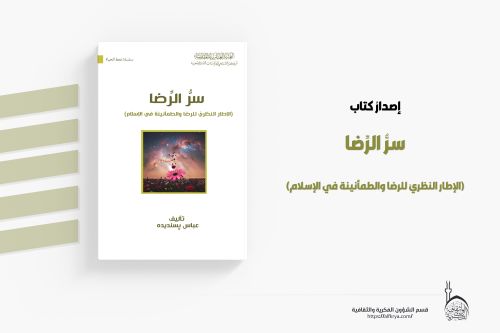

Grammar


Tenses


Present

Present Simple

Present Continuous

Present Perfect

Present Perfect Continuous


Past

Past Continuous

Past Perfect

Past Perfect Continuous

Past Simple


Future

Future Simple

Future Continuous

Future Perfect

Future Perfect Continuous

Passive and Active


Parts Of Speech


Nouns

Countable and uncountable nouns

Verbal nouns

Singular and Plural nouns

Proper nouns

Nouns gender

Nouns definition

Concrete nouns

Abstract nouns

Common nouns

Collective nouns

Definition Of Nouns


Verbs

Stative and dynamic verbs

Finite and nonfinite verbs

To be verbs

Transitive and intransitive verbs

Auxiliary verbs

Modal verbs

Regular and irregular verbs

Action verbs


Adverbs

Relative adverbs

Interrogative adverbs

Adverbs of time

Adverbs of place

Adverbs of reason

Adverbs of quantity

Adverbs of manner

Adverbs of frequency

Adverbs of affirmation


Adjectives

Quantitative adjective

Proper adjective

Possessive adjective

Numeral adjective

Interrogative adjective

Distributive adjective

Descriptive adjective

Demonstrative adjective


Pronouns

Subject pronoun

Relative pronoun

Reflexive pronoun

Reciprocal pronoun

Possessive pronoun

Personal pronoun

Interrogative pronoun

Indefinite pronoun

Emphatic pronoun

Distributive pronoun

Demonstrative pronoun


Pre Position


Preposition by function

Time preposition

Reason preposition

Possession preposition

Place preposition

Phrases preposition

Origin preposition

Measure preposition

Direction preposition

Contrast preposition

Agent preposition


Preposition by construction

Simple preposition

Phrase preposition

Double preposition

Compound preposition


Conjunctions

Subordinating conjunction

Correlative conjunction

Coordinating conjunction

Conjunctive adverbs


Interjections

Express calling interjection


Grammar Rules

Preference

Requests and offers

wishes

Be used to

Some and any

Could have done

Describing people

Giving advices

Possession

Comparative and superlative

Giving Reason

Making Suggestions

Apologizing

Forming questions

Since and for

Directions

Obligation

Adverbials

invitation

Articles

Imaginary condition

Zero conditional

First conditional

Second conditional

Third conditional

Reported speech


Linguistics

Phonetics

Phonology


Semantics


Pragmatics

Linguistics fields

Syntax

Morphology

Semantics

pragmatics

History

Writing

Grammar

Phonetics and Phonology

Semiotics


Reading Comprehension

Elementary

Intermediate

Advanced


Teaching Methods

Teaching Strategies
The module Ethics in Healthcare
المؤلف:
Mary-Jane Taylor & Coralie McCormack
المصدر:
Enhancing Teaching and Learning through Assessment
الجزء والصفحة:
P80-C8
2025-06-12
58
The module Ethics in Healthcare
Ethics in Healthcare is a module that students undertake in the second year of the Diploma of Higher Education in Nursing and Bachelor of Nursing Degree Programs (Adult Nursing Branch). An integrated curriculum approach has been adopted which entails weaving an identifiable strand of content throughout the program (Ryden et al., 1989). A two-pronged approach is taken, in that, ethical content is included in a variety of modules and there is also a specific module, which focuses solely on ethics and law. Prior to undertaking the module, Ethics in Healthcare, students will have achieved competencies in professional and ethical issues in theory and practice modules in Year 1 and when developing EIHC it was considered important to build upon this.
Students are faced with a wide range of ethical and legal issues in their day-to-day practice and this has resulted in the aims of the module being multi-factorial. The stated aim of the module is to allow students to examine ethical, professional and legal aspects of healthcare provision. The integral relationship between ethical principles and theories and the main topics becomes apparent to students as the module progresses.
The interface between theory and practice is central to this module and students are encouraged to use their experiences in the clinical area to explore and develop an understanding of the ethical principles and theories they will be introduced to. Students are required to apply relevant theories and principles to a variety of practice related situations. Further, it is expected that on completion of the module students will be able to recognize ethical situations in practice at both micro and macro levels and to contribute to ethical decision-making within a healthcare setting with the support of clinical staff.















 قسم الشؤون الفكرية يصدر مجموعة قصصية بعنوان (قلوب بلا مأوى)
قسم الشؤون الفكرية يصدر مجموعة قصصية بعنوان (قلوب بلا مأوى) قسم الشؤون الفكرية يصدر مجموعة قصصية بعنوان (قلوب بلا مأوى)
قسم الشؤون الفكرية يصدر مجموعة قصصية بعنوان (قلوب بلا مأوى) قسم الشؤون الفكرية يصدر كتاب (سر الرضا) ضمن سلسلة (نمط الحياة)
قسم الشؤون الفكرية يصدر كتاب (سر الرضا) ضمن سلسلة (نمط الحياة)

















